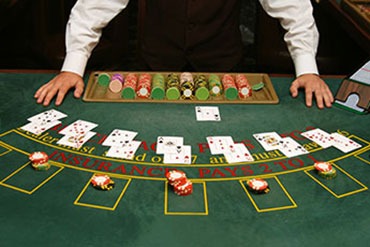Gambling Addiction Counseling
 Did you know that approximately three percent of the adult population suffers from a gambling addiction? In many cases, this problem results in bankruptcy, martial strain, and job loss. Some problem gamblers even turn to criminal activity to finance their obsession.
Did you know that approximately three percent of the adult population suffers from a gambling addiction? In many cases, this problem results in bankruptcy, martial strain, and job loss. Some problem gamblers even turn to criminal activity to finance their obsession.
Simply put, gambling is defined as playing a game of chance for the opportunity to win money. Lotteries, casinos, horse tracks, bingo, and the stock market are all forms of gambling. The American Psychiatric Association defines problem gambling as a behavioral addiction that is a disorder of impulse control. People suffering from a gambling addiction know their behavior is causing problems, yet feel powerless to control their urges. This usually ends with the person going into a formal addiction treatment program for help.
Effects of Gambling Addiction
Problem gambling affects people of all ages, races, and socio-economic statuses. College students gamble away their student loan money on lottery tickets, while retirees spend their Social Security checks during weekly casino trips. More men are compulsive gamblers than women, but the consequences of addiction are equally devastating for both genders.
Many problem gamblers become addicted after experiencing initial success. After winning small sums of money, they feel confident enough to increase their wagers. When faced with a loss, they increase their bets in an attempt to win back their money. When this doesn’t work, they become desperate and resort to lying, cheating, and/or stealing to finance their gambling.
Symptoms of Gambling Addiction
Compulsive gambling is often a hidden addiction. Unlike substance abuse, gambling addiction often goes unnoticed until a crisis erupts.
Distinguishing the casual gambler from the true addict can seem difficult, but problem gamblers often exhibit several warning signs. The following symptoms are common among people suffering from a gambling addiction:
- Gambling to escape problems or cope with feelings of sadness and depression
- Gambling with larger sums money to create a feeling of greater excitement
- Being secretive about personal finances or hiding losses from a spouse/partner
- Stealing money from friends or family members
- Embezzlement, employee theft, or other criminal activity in the workplace
- Borrowing money to repay gambling debts
- Lying to others to conceal the extent of gambling debts
While alcoholism is not a sign of problem gambling, many compulsive gamblers are frequent drinkers. Alcohol contributes to the progression of a gambling addiction by lowering inhibitions and impairing judgment.
Breaking the Habit
 Mental health professionals often refer to problem gambling as a progressive disorder. This means that gambling becomes chronic and more difficult to control as the behavior is allowed to continue. However, it is possible to treat the problem gambler.
Mental health professionals often refer to problem gambling as a progressive disorder. This means that gambling becomes chronic and more difficult to control as the behavior is allowed to continue. However, it is possible to treat the problem gambler.
Most experts agree that the program gambler needs an individualized treatment plan if he/she is to fully recover. Treatment may involve one or more of the following:
- Education about the consequences of gambling addiction
- Counseling to treat the mental health issues that are contributing to the gambling addiction
- Prescription antidepressants to manage the symptoms of chronic depression Financial counseling to assist in managing gambling-related debts
- Legal services to cope with evictions, foreclosures, and/or loan defaults
- Support groups such as Gamblers Anonymous to offer an environment that encourages recovery
Addiction Counseling Can Help
Once you’re ready to own up to your gambling problem, the work of recovery can begin. Start by seeking professional help from an addiction specialist. This is also the time to come clean to your loved ones and ask for their support. Overcoming a gambling addiction or problem is never easy. But recovery is possible if you stick with treatment and seek support.
Since problem gambling can cause strain on relationships with family and friends, Gam-Anon provides support for those who have a loved one suffering from a gambling addiction. Friends and family of problem gamblers may also benefit from regular visits with a counselor To learn more about how counseling can help or to make an appointment, please call my office.





